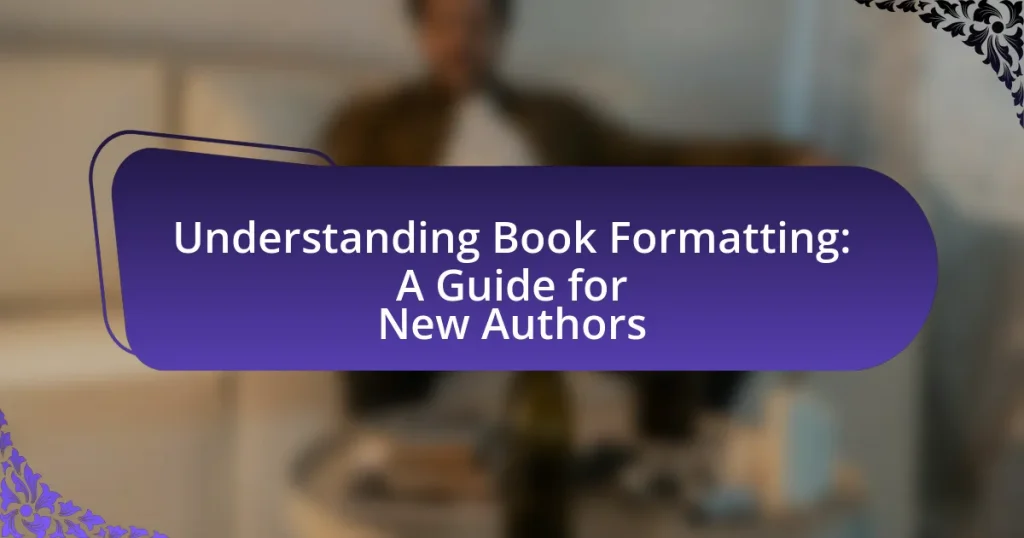A compelling author bio is a critical component for authors seeking to establish credibility and connect with their audience. This article outlines the essential elements of an effective author bio, including personal background, professional achievements, and unique writing style. It emphasizes the importance of authenticity and relatability in engaging readers, as well as the role of a well-crafted bio in marketing a book. Additionally, the article provides practical steps for writing an author bio, common pitfalls to avoid, and best practices for tailoring the bio to different audiences.

What is a Compelling Author Bio?
A compelling author bio is a concise and engaging summary of an author’s background, achievements, and expertise that captures the reader’s interest. It typically includes relevant personal details, professional accomplishments, and insights into the author’s writing style or themes. For instance, a well-crafted author bio might highlight an author’s previous publications, awards, or unique experiences that relate to their work, thereby establishing credibility and connection with the audience. Research indicates that readers are more likely to engage with an author whose bio effectively conveys authenticity and relatability, making it a crucial element in marketing a book.
Why is an Author Bio Important for Your Book?
An author bio is important for your book because it establishes credibility and connects the author to the audience. A well-crafted bio provides readers with insights into the author’s background, expertise, and motivations, which can enhance their trust in the content. For instance, a study by the Pew Research Center indicates that 70% of readers prefer to know about the author before engaging with a book, highlighting the significance of an author bio in influencing purchasing decisions. Additionally, an engaging bio can create a personal connection, making readers more likely to invest in the author’s work.
How does an Author Bio influence reader perception?
An Author Bio significantly influences reader perception by establishing credibility and relatability. When readers encounter an Author Bio, they assess the author’s qualifications, experiences, and personal background, which can enhance trust in the content. For instance, a bio that highlights relevant expertise or previous publications can lead readers to view the author as an authority in the subject matter. Research indicates that readers are more likely to engage with and value content from authors who present themselves as knowledgeable and relatable, as seen in studies on author credibility and reader engagement.
What role does an Author Bio play in marketing?
An Author Bio plays a crucial role in marketing by establishing credibility and connecting with the target audience. It serves as a tool to showcase the author’s expertise, background, and unique voice, which can enhance the appeal of their work. For instance, a well-crafted Author Bio can increase reader trust and interest, leading to higher engagement and sales. Research indicates that 70% of readers are more likely to purchase a book when they feel a personal connection to the author, highlighting the importance of a compelling Author Bio in effective marketing strategies.
What Elements Make an Author Bio Compelling?
A compelling author bio includes personal background, professional credentials, unique writing style, and relevant achievements. Personal background helps readers connect with the author on a human level, while professional credentials establish authority and expertise in the subject matter. A unique writing style differentiates the author from others, making their work memorable. Relevant achievements, such as awards or notable publications, provide proof of the author’s credibility and success in their field. These elements combined create a well-rounded and engaging author bio that resonates with readers.
What personal details should be included in an Author Bio?
An Author Bio should include personal details such as the author’s name, professional background, relevant writing experience, and any notable achievements or awards. These elements establish credibility and connect the author to their work. For instance, mentioning previous publications or specific genres can enhance the bio’s relevance to the target audience. Additionally, including personal interests or hobbies can humanize the author, making them more relatable to readers. This approach aligns with best practices in author bios, which emphasize authenticity and connection to the audience.
How can professional achievements enhance an Author Bio?
Professional achievements enhance an Author Bio by establishing credibility and authority in the subject matter. When an author lists relevant accomplishments, such as awards, publications, or professional experience, it signals to readers that they possess expertise and knowledge, which can increase trust and interest in their work. For instance, an author with a PhD in a relevant field or who has received industry accolades is likely to be perceived as more knowledgeable, thereby attracting a wider audience. This credibility can lead to increased book sales and opportunities for speaking engagements or collaborations.

How to Craft Your Author Bio?
To craft your author bio, start by clearly stating your name and your writing credentials or achievements. This establishes your authority and gives readers context about your expertise. Include relevant details such as your published works, awards, or professional background that relate to your writing. For instance, if you have written multiple bestsellers or have a degree in literature, mention these specifics to enhance credibility. Additionally, incorporate personal elements that resonate with your audience, such as your writing journey or interests, to create a connection. Research shows that personal anecdotes can increase reader engagement, making your bio more relatable and memorable.
What are the steps to writing an effective Author Bio?
To write an effective Author Bio, follow these steps: First, identify your target audience and tailor your bio to resonate with them. Next, include your professional background, highlighting relevant experiences and achievements that establish credibility. Then, add personal touches, such as hobbies or interests, to create a connection with readers. After that, keep the bio concise, ideally between 100 to 200 words, ensuring clarity and engagement. Finally, revise and edit for grammar and style, ensuring the bio reflects your voice and personality. These steps are essential as they help create a compelling narrative that attracts and retains reader interest.
How do you determine the right tone for your Author Bio?
To determine the right tone for your Author Bio, assess your target audience and the genre of your writing. The tone should align with the expectations of your readers; for instance, a formal tone suits academic works, while a conversational tone is appropriate for fiction or personal narratives. Research indicates that author bios with a tone matching the book’s style enhance reader connection and engagement, as seen in studies on reader preferences in literary contexts.
What length should your Author Bio be?
An Author Bio should typically be between 100 to 200 words. This length allows authors to provide essential information about their background, expertise, and achievements without overwhelming the reader. Research indicates that concise bios are more engaging and effective in capturing the audience’s attention, as they provide just enough detail to establish credibility while encouraging further exploration of the author’s work.
How can you tailor your Author Bio for different audiences?
To tailor your Author Bio for different audiences, focus on the specific interests and values of each group. For example, when addressing a literary audience, emphasize your writing credentials, awards, and relevant publications. Conversely, for a business audience, highlight your professional experience, industry expertise, and any relevant achievements that showcase your authority in the field. Research indicates that personalized content increases engagement; a study by HubSpot found that personalized emails can improve click-through rates by 14%. Thus, adapting your bio to resonate with the audience’s expectations enhances its effectiveness.
What adjustments should be made for a literary audience?
To effectively engage a literary audience, adjustments should include emphasizing literary achievements, showcasing relevant publications, and highlighting unique writing styles. Literary audiences appreciate detailed insights into an author’s background, so including awards, notable works, and participation in literary events can enhance credibility. For instance, mentioning a previous novel that received critical acclaim or a short story published in a prestigious literary journal can resonate well with this audience. Additionally, using a tone that reflects the author’s voice and literary sensibilities can create a stronger connection, making the bio more relatable and engaging.
How can you adapt your Author Bio for a general audience?
To adapt your Author Bio for a general audience, focus on using clear, accessible language that highlights your relevant experience and interests without jargon. This approach ensures that readers from diverse backgrounds can easily understand and connect with your narrative. For instance, instead of using specialized terms, describe your writing journey and achievements in relatable terms, such as mentioning your passion for storytelling or your favorite genres. This method not only broadens your appeal but also fosters a sense of familiarity and engagement with potential readers.

What Common Mistakes Should You Avoid in Your Author Bio?
Common mistakes to avoid in your author bio include being overly vague, using jargon, and neglecting to highlight relevant achievements. Vague descriptions fail to engage readers, while jargon can alienate them; clarity is essential for effective communication. Additionally, omitting significant accomplishments diminishes credibility; for instance, mentioning awards or notable publications can enhance your authority. According to a study by the Author’s Guild, bios that include specific achievements are 30% more likely to attract reader interest.
What are the pitfalls of writing an Author Bio?
The pitfalls of writing an Author Bio include being overly self-promotional, lacking authenticity, and failing to connect with the target audience. Overly self-promotional bios can alienate readers, as they may perceive the author as insincere or egotistical. Authenticity is crucial; if the bio does not reflect the author’s true voice or experiences, it can lead to distrust among potential readers. Additionally, failing to consider the target audience can result in a bio that does not resonate, making it less effective in engaging readers. These pitfalls can diminish the impact of the bio and hinder the author’s ability to connect with their audience.
How can vague language undermine your Author Bio?
Vague language can undermine your Author Bio by failing to convey your unique qualifications and experiences clearly. When an Author Bio lacks specificity, it diminishes the reader’s ability to connect with the author, leading to a perception of uncertainty or lack of credibility. For instance, stating “I have experience in writing” does not provide the reader with concrete information about the author’s background, such as the number of published works or specific genres. This lack of detail can result in missed opportunities for engagement, as readers often seek authors with clear expertise and relatable experiences.
Why is it important to avoid clichés in your Author Bio?
Avoiding clichés in your Author Bio is crucial because it helps to create a unique and memorable impression on readers. A distinctive bio captures attention and reflects authenticity, which is essential for establishing a personal connection with the audience. Research indicates that originality in writing enhances engagement; for instance, a study published in the Journal of Marketing found that unique content significantly increases reader interest and retention. Therefore, steering clear of clichés not only differentiates an author but also fosters a stronger relationship with potential readers.
How can you ensure your Author Bio stands out?
To ensure your Author Bio stands out, focus on highlighting unique personal experiences and achievements that relate to your writing. Including specific details, such as notable awards or relevant professional background, can enhance credibility and interest. For instance, if you have won a literary award or have a unique life story that informs your writing, mentioning these elements can differentiate your bio from others. Research shows that bios with specific accomplishments are more memorable and engaging, making them more likely to resonate with readers.
What unique aspects of your personality can you highlight?
I possess a strong sense of curiosity, which drives me to explore diverse subjects and engage with various perspectives. This curiosity has led me to develop a broad knowledge base, allowing me to connect with readers from different backgrounds. Additionally, my adaptability enables me to thrive in changing environments, fostering creativity in my writing. These traits are supported by my experiences in collaborative projects, where I successfully navigated challenges and contributed innovative ideas, demonstrating my ability to think critically and work effectively with others.
How can storytelling enhance your Author Bio?
Storytelling can enhance your Author Bio by making it more engaging and relatable, thereby capturing the reader’s attention. When authors incorporate personal anecdotes or narratives about their writing journey, it creates a connection with the audience, fostering a sense of authenticity. Research indicates that stories are more memorable than facts alone; for instance, a study by the University of California found that narratives can increase information retention by up to 65%. This means that a well-crafted story within an Author Bio not only makes it more compelling but also helps readers remember the author and their work more effectively.
What are some best practices for writing an Author Bio?
To write an effective Author Bio, focus on clarity, relevance, and engagement. Start with a concise introduction that includes your name and professional credentials, as this establishes authority. Follow with a brief overview of your writing experience, highlighting notable works or achievements to build credibility. Incorporate personal elements, such as hobbies or interests, to create a connection with readers. Use a tone that reflects your writing style, ensuring consistency across your bio and your work. Finally, keep the bio updated to reflect your latest accomplishments and projects, as this maintains relevance and interest.
How often should you update your Author Bio?
You should update your Author Bio at least once a year or whenever significant changes occur in your career or personal life. Regular updates ensure that your bio reflects your most current achievements, publications, and relevant experiences, which is crucial for maintaining credibility and engagement with your audience. For instance, if you publish a new book, receive an award, or change your professional focus, these milestones warrant an immediate update to keep your bio relevant and informative.
What resources can help you refine your Author Bio?
Resources that can help refine your Author Bio include writing guides, online workshops, and professional editing services. Writing guides, such as “The Artist’s Way” by Julia Cameron, provide structured exercises to enhance self-expression and clarity in bios. Online workshops, like those offered by platforms such as MasterClass or Coursera, often feature industry experts who share best practices for crafting engaging author bios. Professional editing services, such as Scribendi or Reedsy, can provide personalized feedback and suggestions to improve the overall quality and impact of your bio. These resources collectively offer valuable insights and practical tools to create a compelling Author Bio.



